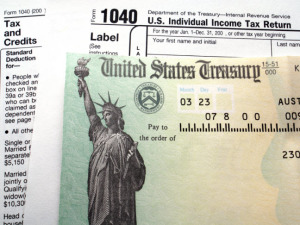 Today’s top story: Navigating car insurance as a transgender or nonbinary driver. Also in the news: How to smooth the transition into retirement, what motherhood taught eight women about money, and how to choose a payment plan when you owe the IRS.
Today’s top story: Navigating car insurance as a transgender or nonbinary driver. Also in the news: How to smooth the transition into retirement, what motherhood taught eight women about money, and how to choose a payment plan when you owe the IRS.
Navigating Car Insurance as a Transgender or Nonbinary Driver
Selecting a gender on a car insurance application isn’t always easy for transgender and nonbinary drivers.
How to Smooth the Transition Into Retirement
What Motherhood Taught Me About Money: 8 Moms Weigh In
Hard-earned wisdom.
How to Choose a Payment Plan When You Owe the IRS
Picking the plan that makes the most sense.
 Today’s top story: How to line up rent aid and a backup plan. Also in the news: Changing the face of the cannabis industry, why you should check your Medicare coverage before traveling again, and when to expect your delayed IRS refund.
Today’s top story: How to line up rent aid and a backup plan. Also in the news: Changing the face of the cannabis industry, why you should check your Medicare coverage before traveling again, and when to expect your delayed IRS refund. Today’s top story: What gig workers need to know about taxes. Also in the news: 5 credit card red flags to avoid, why financial advisors of color matter, and how to prevent stolen tax returns.
Today’s top story: What gig workers need to know about taxes. Also in the news: 5 credit card red flags to avoid, why financial advisors of color matter, and how to prevent stolen tax returns. Today’s top story: New Medicare Advantage benefits may be hard to find and to qualify for. Also in the news: 4 questions to ask before refinancing your mortgage, why college aid requests have decreased, and what to do if you haven’t filed your taxes in years.
Today’s top story: New Medicare Advantage benefits may be hard to find and to qualify for. Also in the news: 4 questions to ask before refinancing your mortgage, why college aid requests have decreased, and what to do if you haven’t filed your taxes in years.  Today’s top story: How hotel prices changed in 2020 vs. 2019. Also in the news: A new episode of the SmartMoney Podcast on emergency loans and the perks of buying local, what to know about EFTs and adding them to your portfolio, and what to do if you receive an unpaid notice from the IRS.
Today’s top story: How hotel prices changed in 2020 vs. 2019. Also in the news: A new episode of the SmartMoney Podcast on emergency loans and the perks of buying local, what to know about EFTs and adding them to your portfolio, and what to do if you receive an unpaid notice from the IRS.